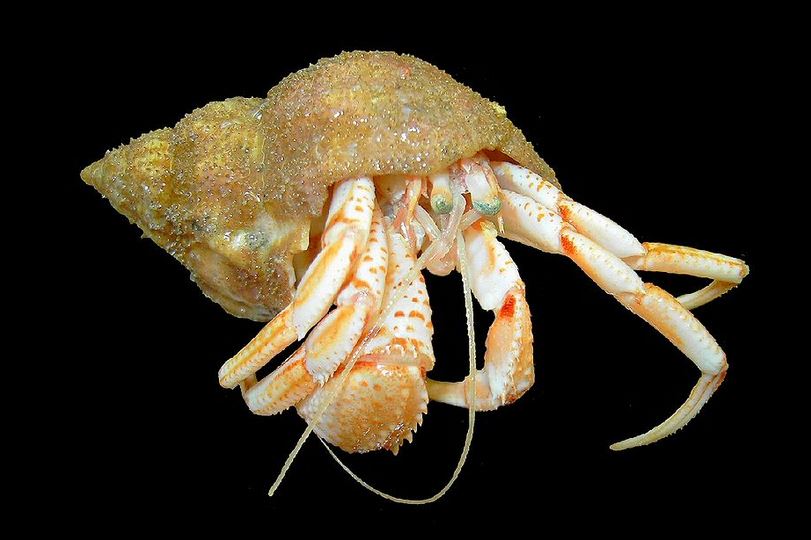Shy males are superior specimens, they are better mates because of their top-quality sperm, say British and American scientists after carrying out a study on hermit crabs. Staying hidden in their shells seems to help improve their reproductive capabilities.
Professor Mark Briffa, who works at the School of Marine Science and Engineering, Faculty of Science & Environment, part of Plymouth University, and colleagues from the University of Kentucky found that the majority of shy hermit crabs tended to have more high quality sperms compared to their less risk-averse peers.
The study findings have been published in the academic journal Royal Society Proceedings B (citation below).

A hermit crab (Pagurus bernhardus). The bashful ones tend to have better-quality sperm. (Image: Wikipedia)
The researchers say that hermit crabs that spend most of their time hidden inside their shells invest more resources into becoming better mates.
Risk aversion linked to sperm quality
Prof. Briffa said:
“It appears that in hermit crabs, high quality individuals that have invested heavily in reproduction, by making large spermatophores, are the most risk averse.”
“Although we did not measure metabolic rate, a key process for the pace of life syndrome, this result seems counter to the idea that the most productive individuals should also be the boldest.”
The team gathered and analyzed data on the personalities of 100 hermit crabs (Pagurus bernhardus) collected from Hannafore Point and Mount Batten in Plymouth, England.
They monitored the crabs’ ‘startle response’ by removing them from their tank and placing them on a surface upside down for five seconds, thus encouraging them to come out of their shells. They were then placed the right way up back in the tank.
Those that poked their heads out first were the “bold” crabs, while the ones that did it last were the “shy” or “timid” ones.
The sperm quality in the ‘shy’ crabs was significantly superior to the ‘bold’ ones, the researchers found.
By staying longer inside their shells, the crabs are probably conserving more energy, which is used for building greater sperm reserves and improving their quality, the scientists believe.
In an Abstract in the journal, the authors concluded:
“Thus, counter to expectations, it was the most risk-averse individuals, rather than the boldest and most risk prone, that were the most productive. We suggest that similar patterns should be present in other species, if the most productive individuals avoid risky behaviour.”
Citation: “Individual quality and personality: bolder males are less fecund in the hermit crab Pagurus bernhardus,” Danielle Bridger , Simon J. Bonner and Mark Briffa. Royal Society Proceedings B. 11 Feb, 2015. DOI: 10.1098/rspb.2014.2492.

